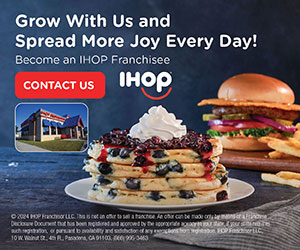It's Essential to Have a Strong Social Presence

Socialmediatoday.com claims, "there are over 2.206 billion active users, a global penetration of 30%." With nearly a third of the world's population interacting on social media platforms, you'll be hard pressed to find a brand that isn't active on social media. Some key reasons a brand would be wise to commit to a strong social presence are:
Brand Recognition
Social media puts you right in front of the consumer's eyes at a fraction of the price of a paid advertisement. Creating social content that speaks in a brand's unique tone and voice goes a long way.
Inbound Traffic
Having a large social following means more consumers are engaging with your promotions. More people seeing these promotions means more people actually visiting your site to get a better feel for your product or service.
Brand Loyalty
Social media provides a unique opportunity for a brand to develop a personality and a sense of humanness that other marketing channels don't. As a company, actively engaging with a consumer base in an authentic way helps develop brand advocates.
Conversion
With the above-mentioned brand loyalty comes a greater likelihood of conversion. The humanized element of social media provides comfort in the buying process. We tend to trust people more than we trust brands.
Platforms
Social media--like all digital marketing channels--is constantly changing, and therefore requires constant monitoring of current trends to understand who the industry leaders are. It's not enough to simply know what social media platforms are out there, but also what each platform is bringing to the table.
1) Facebook - The undisputed behemoth of social media is still Facebook. With 1.49 billion active users every month, Facebook is a no-brainer for any digital marketing strategy. However it's important to understand your business, customers, and both of their needs. Not all social media platforms are right for all brands, so consulting with a social media expert is advised. In recent years, it has become increasingly difficult for businesses to reach consumers organically, and some have begun running Facebook ads, in addition to their regular posting schedule. A Facebook business page offers the opportunity to use paid advertisements with very specific goals.
Once a business has kicked off its Facebook campaign, it has the insights tool at its disposal for in depth information about post engagement, fan demographics, and much more.
2) Twitter - Unlike Facebook, there are no company specific profile options for Twitter. Creating a company profile offers no difference from any of the other 316 million monthly active users. In many ways this non-distinction between personal and company profiles can be an advantage for your brand. Twitter's micro-content nature allows brands to easily interact with their consumer base and as a result, creates a genuine sense of transparency between brand and consumer. Furthermore, Twitter's feed is based off of time of post rather than an algorithm, meaning a brand's posts don't get buried in the news feed like they might on Facebook.
3) LinkedIn - In terms of B2B digital marketing, LinkedIn is king. With its large number of self-described "professionals" and company accounts, the social media platform is a powerful medium for B2B networking in a digital world. Just like Facebook's highly targeted ads, "LinkedIn Ads" provides marketers with advertisements able to target specific industries, job titles, and alma maters.
Once an ad is live on LinkedIn, digital marketers will want to track performance through the site's analytics section. Metrics listed in the analytics section include impressions, clicks, interactions, followers acquired, and engagement percentage.
Social Media Best Practices
Social media can do a lot for online marketing and it's important to know some best practices for your brand's social presence.
- Understand the Audience - For example, if you run a financial consulting firm, your clientele is most likely business professionals. As such, you'll want to deliver content that is formal and informative. Posting memes and silly gifs probably won't resonate with the financial community like it would for an online gaming community. Crafting content to be relevant will go a long way in creating brand loyalty.
- Remain Social - Nothing turns users off more than content that's obviously promotional. Of course you'll want to use social media to promote products and services, but be careful not to let your business's social media accounts become a hub of advertisements. Actively interacting with your target audience is, more often than not, much more likely to generate a lead than a redundant ad.
- Go for Local Loyalty - It's highly unlikely you'll be able to achieve the same reach as multinational corporations. Instead, focusing your social media efforts on a highly specific segment of your brand's niche may yield better results. The advertisement options available on social media give digital marketers the perfect way to achieve local loyalty.
Share this Feature
Recommended Reading:
Comments:
comments powered by Disqus| ADVERTISE | SPONSORED CONTENT |
FRANCHISE TOPICS
- Multi-Unit Franchising
- Get Started in Franchising
- Growth
- Operations
- Open New Units
- Leadership
- Marketing
- Technology
- Legal
- Awards
- Rankings
- Trends
- Featured Franchise Stories
| ADVERTISE | SPONSORED CONTENT |
$175,000
$250,000




 The multi-unit franchise opportunities listed above are not related to or endorsed by Multi-Unit Franchisee or Franchise Update Media Group. We are not engaged in, supporting, or endorsing any specific franchise, business opportunity, company or individual. No statement in this site is to be construed as a recommendation. We encourage prospective franchise buyers to perform extensive due diligence when considering a franchise opportunity.
The multi-unit franchise opportunities listed above are not related to or endorsed by Multi-Unit Franchisee or Franchise Update Media Group. We are not engaged in, supporting, or endorsing any specific franchise, business opportunity, company or individual. No statement in this site is to be construed as a recommendation. We encourage prospective franchise buyers to perform extensive due diligence when considering a franchise opportunity.